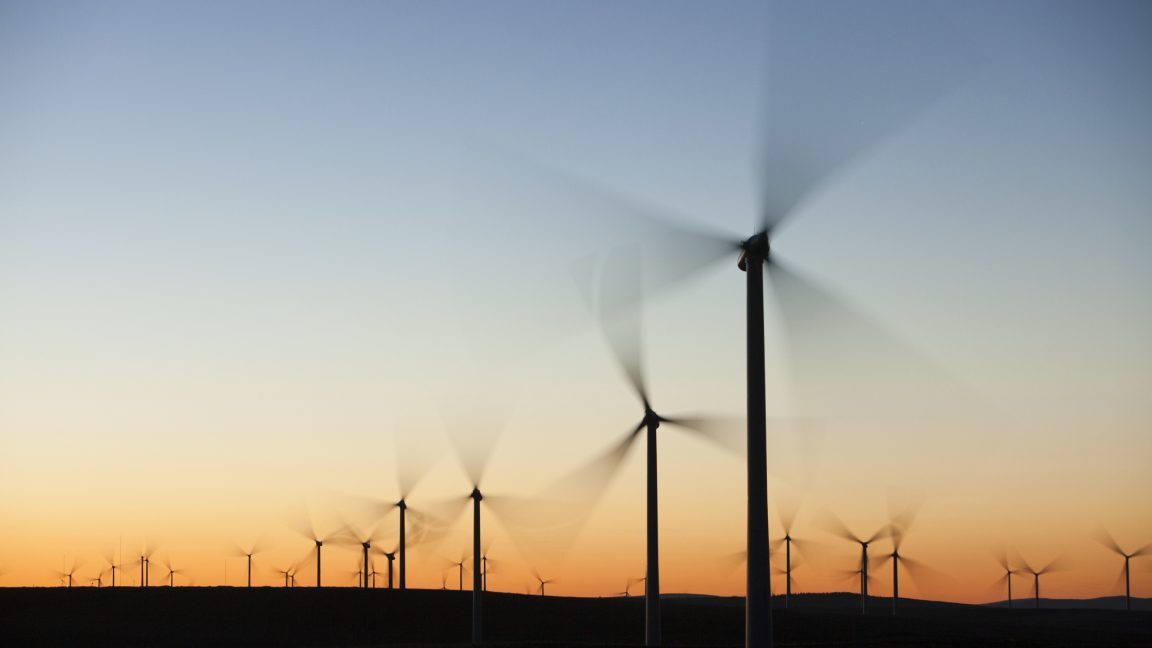Wind farm conspiracy theories reflect deeper anxieties about change. They combine distrust of government, nostalgia for the fossil fuel era, and a resistance to confronting the complexities of the modern world
Why it matters
- The rise of conspiracy theories surrounding wind farms signals a growing skepticism towards governmental initiatives in renewable energy.
- These theories reflect a broader cultural nostalgia for traditional fossil fuel industries, complicating the transition to greener alternatives.
- Understanding the roots of these anxieties can help policymakers address public concerns more effectively.
In recent years, a wave of conspiracy theories regarding wind farms has emerged, revealing a complex tapestry of societal anxieties and distrust. As nations push towards renewable energy solutions, the backlash against wind energy facilities illustrates a deeper unease about change and progress. These theories often stem from a combination of factors, including skepticism towards government motives, a longing for the fossil fuel era, and an aversion to the complexities that modernization entails.
At the heart of this phenomenon is a growing mistrust of government institutions. Many individuals feel alienated from the decision-making processes that lead to the establishment of wind farms, viewing these projects as top-down impositions rather than community-driven initiatives. This distrust is exacerbated by historical instances where government actions have not aligned with public interests, leading to a fertile ground for conspiracy theories to flourish. The narrative that these facilities are somehow dangerous or detrimental to health resonates with those who feel disenfranchised, allowing them to latch onto alternative explanations for their discomfort.
Moreover, the nostalgia for the fossil fuel era plays a significant role in shaping opinions about wind energy. For some, coal, oil, and natural gas are not merely energy sources but symbols of stability and economic pride. The industries associated with fossil fuels have historically provided jobs and fostered community identities. As society transitions towards renewable energy, there is a palpable fear of losing not just jobs, but also a way of life that many have long cherished. This nostalgia can morph into resistance against wind farms, viewed as emblematic of a future that threatens to erase familiar landscapes and lifestyles.
Additionally, the complexities inherent in modern energy discussions contribute to this resistance. Transitioning to renewable energy sources like wind power involves a myriad of technical, economic, and environmental considerations that can be daunting to navigate. Many individuals may feel overwhelmed by the scientific and logistical discussions surrounding energy production, leading to a reliance on simplified narratives—often propagated by conspiracy theories—that promise clarity and certainty in an uncertain world.
These conspiracy theories often perpetuate the idea that wind farms are not just ineffective, but potentially harmful. Misinformation regarding their impact on health and the environment can spread quickly, especially in the age of social media, where sensational claims often gain traction far faster than corrections. For example, some theories suggest that wind turbines contribute to a range of health issues, despite a lack of scientific consensus supporting these claims. This cycle of misinformation can create fear and resistance that policymakers must confront.
Addressing these conspiracy theories requires a multifaceted approach. Governments and energy companies need to engage with communities directly, fostering open dialogues that allow for concerns to be voiced and addressed. Educational campaigns that demystify the science behind wind energy and its environmental benefits can also play a critical role in combating misinformation. By providing clear, accessible information and facilitating community involvement in renewable energy projects, it may be possible to bridge the divide between skepticism and acceptance.
The future of renewable energy hinges on the ability to navigate these complex social dynamics. As society grapples with the realities of climate change and the urgent need for sustainable solutions, understanding the roots of public anxiety surrounding wind farms will be essential. In a world where change can often feel overwhelming and threatening, addressing these fears with empathy and clarity will be crucial in fostering a collective movement towards a greener future. By acknowledging the emotional and cultural dimensions of this transition, we can work towards a more informed and united approach to energy production in the coming years.











